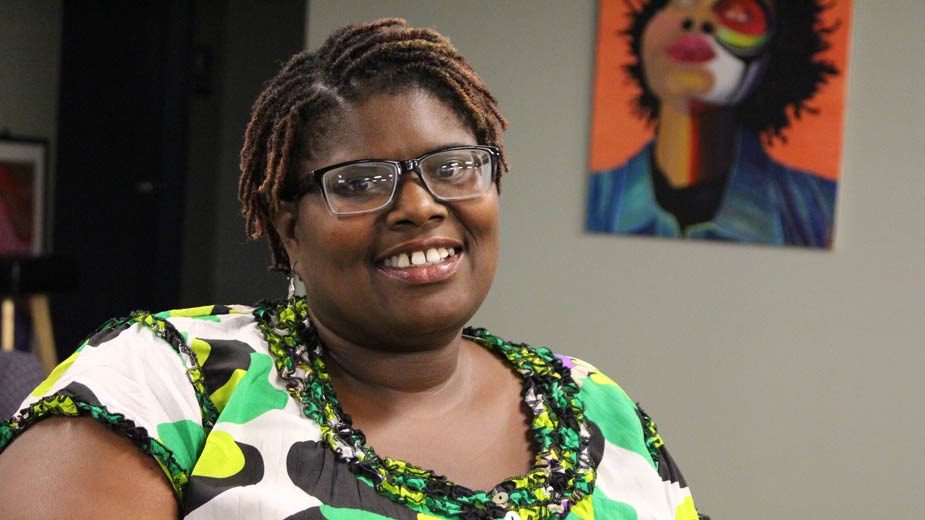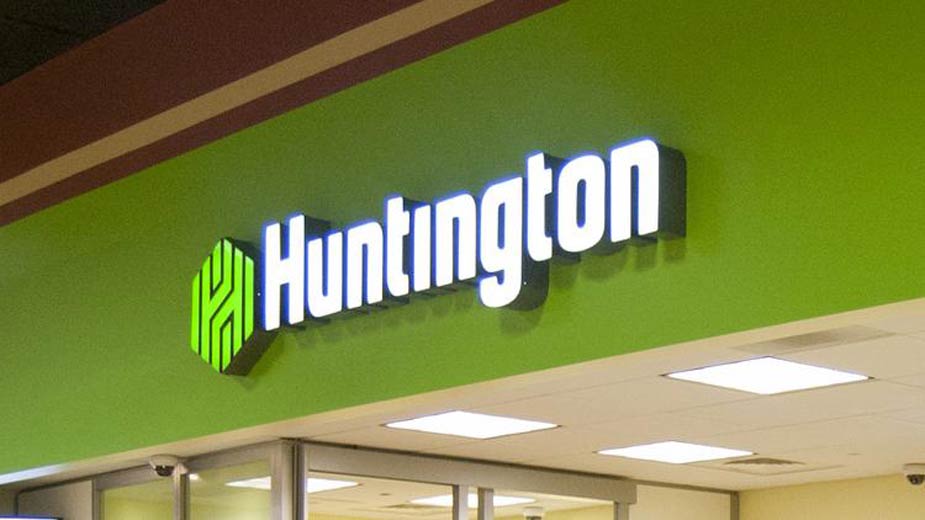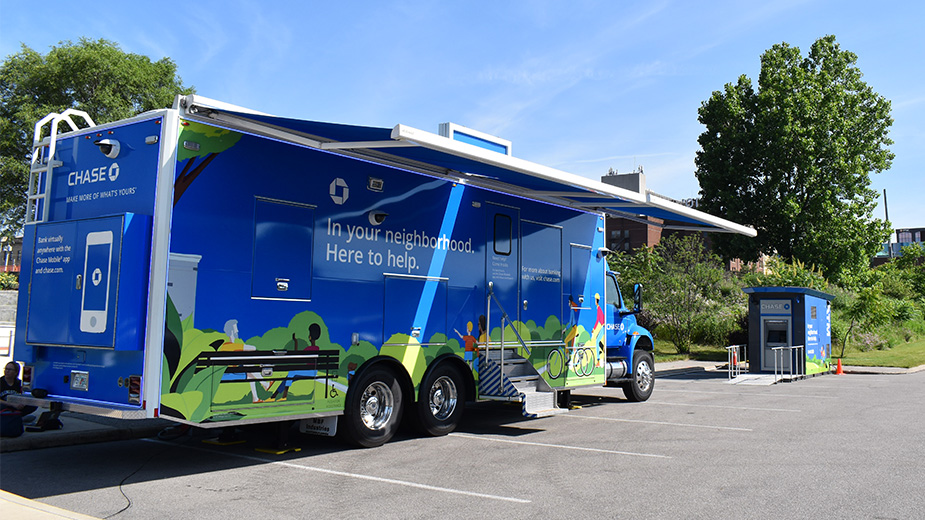She Taught Herself Finance, Now Teaches Others
YOUNGSTOWN, Ohio — Ra’Cole Taltoan had such a knack for math – she never brought home a B in the subject, just A’s – that her father tossed a stack of forms before her to complete one January day during her senior year in high school.
“They were all these tax forms,” she recalls. “He said ‘Go figure this out. You have until April 15.’ ” So, Taltoan did some research on the Internal Revenue Service website and taught herself the fundamentals on how to compile and file taxes. “I was finished with his by March, and I’ve been doing his taxes ever since,” she says with a laugh.
It was Taltoan’s first lesson in applying financial literacy to the real world, and a lesson that would become the basis of her career. After high school, she attended Duquesne University, but dropped out after becoming pregnant. She and her husband then moved to Dayton, where she enrolled at Wright State University and earned a degree in accounting.
She returned to Youngstown and today is imparting her financial wisdom to those who need it most – inner-city entrepreneurs striving to make a better life for themselves and their families. “I offer free bookkeeping classes to help small businesses in the area,” she says. “My goal is to at least get them to a place to recognize where they can get some assistance and figure it out themselves.”
Taltoan runs her service out of the Oak Hill Collaborative, a nonprofit organization that offers small-business incubation services, a Maker Space that allows ideas to inspire new inventions, and a meeting center for other organizations dedicated to community revitalization.
“I have a few clients who are caterers, bar owners, some sell candles, shoes and other products,” Taltoan says. She also works with other nonprofits that help individuals sort out their financial issues.
“I find that a lot of people who come to these agencies have no financial sense at all,” Taltoan says. “They don’t know where to go, where to turn, and end up going to these payday loan places,” where they are charged exorbitant interest rates.
One of the biggest problems she’s seen among her clients is that few understand the importance of separating their business financials from their personal financials, Taltoan says. “A lot of people just take the money and put it in their pocket, and then are hit when it comes to expenses,” she says. “Then, they have to dig into their personal bank accounts.”
Taltoan says it’s important for businesses and households as well to examine how much money is coming in and how much is going out. “We live in a society where people live paycheck to paycheck,” she says. “If you just sit down and take the time to manage your funds, it can change how you live.”
Most at first have very little grasp of how to manage their financial resources, Taltoan says. However, once her clients are introduced to some of the basics, they experience that “aha moment” when they’re able to build their business.
The greatest challenge for her small-business clients – most of whom are low-to-middle income – is to develop a plan that places their ideas into action. “The hardest part is getting it from your brain to the paper,” she says.
Providing small businesses with basic financial counseling is an important part of the Oak Hill Collaborative’s mission to promote community and neighborhood development. “It’s just a necessary thing for people to survive and thrive in their business and personal life,” says Patrick Kerrigan, the collaborative’s executive director. “There are some who are in their 30s or 40s that don’t have a clue about financial literacy. We’re helping people get skills they don’t have now.”
Most of the small businesses are one- or two-person operations with little financial wherewithal, Kerrigan says. “Improving financial literacy is one of the things that people need,” he says. “We want them to learn something and go forward,”
Other organizations advocate financial literacy programs as the first step toward reaching important lifetime goals such as home ownership.
“We started with the housing counseling program,” says Tiffany Sokol, housing director of the Youngstown Neighborhood Development Corp. The goal is to take applicants through a step-by-step process in which they can assess their financial situation and elevate their credit score to a level that is acceptable to lenders.
“We go through their credit report line by line, work on household budgets, help them save receipts, track expenses and see where their money is going,” she elaborates.
While it’s important to help clients build their credit score before they buy a home, it’s equally important to help them manage the post-purchase process. “We want to make sure they’re staying on track, because the first three years are critical,” Sokol says.
YNDC counsels on average about 100 clients a year on financial matters, Sokol says. Some are looking to start small businesses while others are trying to repair their personal credit. Many lack fundamental knowledge of interest rates and how to manage a bank account.
“These are basic life skills that are not being taught in high schools or middle schools,” she says. “It’s a big challenge, especially in the inner city.”
Sokol has many clients who don’t have a bank account – and these are adults that have somehow managed on their own for years. “It’s kind of shocking,” she says.
Jonathan Ellis, an employee at Delphi and a full-time engineering student at Youngstown State University, said he went through YNDC’s program when he and his wife decided to buy a house. “When you go to buy a house, between the down payment, closing costs and understanding escrow, the process is intimidating,” he says. “We went to a class conducted by Tiffany Sokol and she explained what it was all about. It gave us a better understanding about what it takes to buy a home.”
But first, Ellis had to deal with issues on his credit report. “There were a few things that needed taken care of,” he says. By watching their expenses, paying down debt and removing statements on his credit report that were not his, the couple raised their credit score in less than a year, placing them in a strong position to purchase a house.
Sokol helped them develop a working budget, Ellis says, establish a savings account, and develop a plan to ensure all their bills were paid on time. “A couple of years ago, we bought a home,” he says. “Neither one of our parents were homeowners, so this was all new to us. We were motivated to do this.”
Sokol says her role is to provide guidance and there’s no magic bullet when advising clients on establishing good financial habits. Regardless, she says YNDC has helped people buy homes who otherwise wouldn’t qualify because of their credit history and liquidity.
“We’ve had great success with those who are committed. It’s what the clients put into it,” Sokol says. “There are no guarantees here. But, if you’re willing to work, things will improve.”
Pictured: Ra’Cole Taltoan operates a free bookkeeping service.
Copyright 2024 The Business Journal, Youngstown, Ohio.


